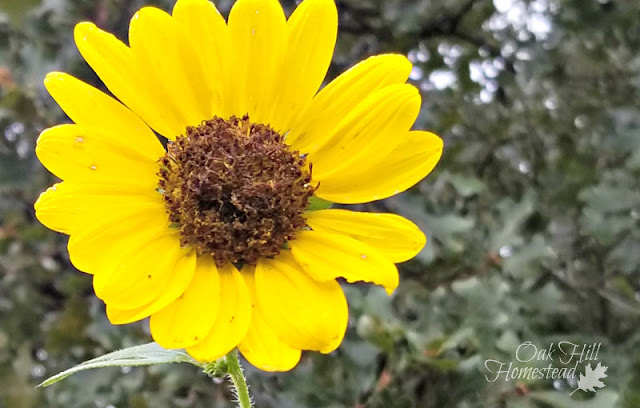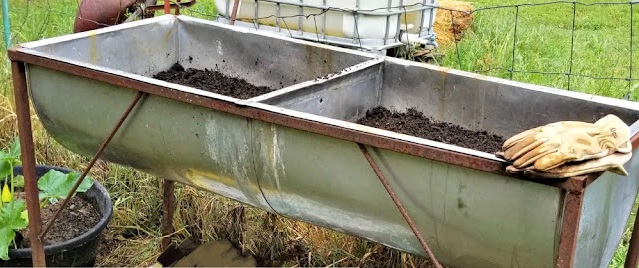There are many reasons you might be thinking about downsizing your homestead.
Changing life circumstances, injury or illness, financial or just homestead burnout can make it necessary to step back for awhile.
Changing your homestead plans doesn't mean you've failed.
Why it's ok to downsize your homestead plans
You've spent years building up your homestead, so why on earth would you want to downsize it?
There are many scenarios that might have you thinking about downsizing your homestead. Whatever your reason might be, there is no shame in changing your direction, downsizing, or totally changing things up.
Reasons why you might want to downsize your homestead
Some reasons that might have you thinking about downsizing include:
- Finances
- Lack of help
- Growing older
- A change in your life circumstances
Life changes
The only constant in life is change. Can I get an amen?
But it's true: change is constant. So we might as well embrace it when it happens.
Perhaps you need to seek employment off the homestead for awhile, and you have less time to devote to your homesteading efforts.
Or you need to care for your spouse, small children, or an aging parent.
Or you're facing a health issue of your own that requires you to slow down. (Oh, those kidney stones I had last summer! They really slowed me down.... for months!)
Or your children grow up and move away, leaving you to manage everything with less help. Do you really need as many chickens and goats as you used to?
Even if you're facing just one complication, you may feel you have to downsize your dream.
Everyone has a breaking point, and it's different for each of us.
Your reasons are valid. It's okay to downsize your homestead, whether it's a permanent change or just for a season, a period of time.
Embracing change
In my case, it was a perfect storm of complications.
Medical bills made it necessary that I look for a part-time job away from the homestead, which means I have to feed by flashlight at both ends of the day. The Chief's medical conditions and the fact that we are getting older also contributed. We don't have family nearby so help isn't readily available.
So I pivoted and changed my focus a bit.
But that's life, and we might as well embrace those changes instead of letting ourselves become bitter and unhappy. I choose joy over bitterness, and I hope you will too.
It's okay to downsize. It's okay to scale back or to change direction, for whatever reason. Let's embrace this season of our life, whatever that season might be.
Aging on the homestead
I've been thinking a lot more about my golden years.
That season of life is getting closer all the time. I've shared some ideas about aging gracefully on the homestead before, but now I'm living in that season.
For some reason, when I was younger and thought ahead to those years when I'd be "old" it didn't really occur to me that my joints would creak and I'd have less energy, or that I'd have less time available.
Here's how I'm downsizing and coping with the changes in my life. If you're facing a difficult season of life, I hope these suggestions will help you out too.
Downsizing livestock
For the past couple of years I've been downsizing my livestock and focusing more on my garden, but last year I seriously downsized my livestock.
I sold my chickens and ducks.
In past years, part of my homestead income came from the sale of chicks and Muscovy ducklings, but it became impossible to keep egg-eating black snakes out of the chicken and duck coops.
Those snakes even ate every one of my half-grown bantam pullets. I was SO MAD. And so sad. I'd raised them from day-old chicks.
While black snakes are considered good snakes because they keep the rodents down, once they find my chicken coop I have a no-tolerance policy.
I "live and let live" when I find a black snake in the fields or even in the hay shed, but when they start eating eggs, I'm done. Unfortunately, it seems that there are always more snakes to take their place.
I think there's a sign in the woods that says (in snake language) "Turn here for fresh eggs."
Then the roof of my chicken coop was badly damaged in a wind storm.
It was easier and more expedient to sell all of the poultry, at least for now.
I've been chicken-less before; it doesn't mean I won't ever have chickens again. Of all the homestead livestock, chickens are the easiest to care for.
For now, I'm buying eggs from a man who raises chickens, and I'm helping to support his family's homestead.
I also sold the horse that caused the most problems in our pasture, the one that didn't respect fences and pushed the other two horses around at feeding time. Life is much calmer now.
Think smart - what's earning its keep on your homestead and what isn't? What takes the most time, or is causing you the most stress? It might even be something other than livestock.
Keep what works
My two remaining horses keep the pasture mowed. Without them, keeping the grass and weeds down would be a lot of work, especially on our steep hillside.
Keeping the grass and brush mowed short is important because of the danger of wildfire in our area.
Horses can be expensive, but mine are earning their keep.
Our huge Pyrenees/Anatolian livestock guardian dog Rosie is the best watchdog in the world, and keeps our homestead safe from coyotes, feral hogs, and other predators.
We don't have as many goats now as we've had in the past, because we don't need as much milk as we did when our children lived at home.
So it makes sense to keep Rosie and the few goats that keep her company these days. Rosie wouldn't be happy without her goats, and I want her to be happy here.
Take a good look at what is and isn't working on your homestead. Make changes or tweak what you're doing to make it work better, or decide what needs to go, even if it's just for a season.
Make livestock care easier
There are ways to make caring for your livestock easier. For instance:
- Invest in large poultry feeders and waterers for your birds. You won't have to fill them as often.
- Store feed near the animals if possible.
- If your mornings are rushed, prepare the morning's feed the evening before. Measure feed into buckets for each animal or species to save time in the morning. Open a bale of hay if you'll need it in the morning, or at least be sure the wire cutters are located nearby.
Change your gardening focus
Unfortunately that part-time job cuts into my gardening time. That's not such a big deal in the middle of winter, but when spring and summer arrive it will be. I'll need to work smarter in the garden.
I've invested a lot of time and work in my garden over the past few years, and it's paying off now. I built raised beds so I could care for the garden by myself, without asking the Chief for help tilling and mowing.
I filled those beds with homemade compost without chemicals and additives. I make comfrey tea to fertilize the plants for a bountiful harvest. I've made plant trellises.
My biggest challenges will be keeping the weeds under control and watering the plants. But raising healthy organic vegetables is important to me, so I'll find a way to make it work.
Here are some ways you too can pivot your focus in the garden during a "season of life" when you can't devote as much time and energy to your garden as you have in the past, but still want to keep it going.
- Decrease the size of your garden, at least for now.
- Move your garden to a more-convenient location. Plant in containers if needed.
- Grow what you know will sustain you. If you've been gardening for awhile, you know what grows well in your location and what doesn't. Give up the fussy plants and concentrate on those that yield well and are a good investment of your time and effort.
- Brainstorm how you can make watering the garden easier. Use a soaker hose or a sprinkler. Buy some quick connect hose couplers or shut-off valves if they'll help you. Put a timer on your faucet (this is the hose timer I use).
- Use a thick layer of mulch such as straw, or cover the soil between plants with cardboard, newspaper or other material to choke out the weeds.
Plant in raised beds if it's getting harder for you to lean over or kneel down.
My garden consists of wooden raised beds about ten inches deep, but my favorite bed is this metal sink where I grow sweet potatoes. It's waist-high and so easy to care for.
We moved a 275-gallon water tote close to the garden so I wouldn't have to drag hoses across the yard in the hot summer. Set a tote or water barrel on top of several pallets or concrete blocks so that gravity will help produce better water pressure.
In other words, make your work easier or less time-consuming so that you can continue to do what you love and what's important to you.
What to do if you feel overwhelmed
Perhaps you are simply overwhelmed with what life is throwing at you right now. It's okay. This too will pass. But for awhile you may need to lighten your duties in some areas so you can take care of more pressing immediate needs.
Downsizing doesn't mean you've failed, or that you've given up. It means you're resilient.
Step back, see what you can cut back on, and give yourself grace to lighten your load.
If you need some help setting homestead goals and actually reaching them, you'll find help in this post.
So, can you homestead in your later years?
I say yes, resoundingly! But it will probably look a little different than it did or would have in your younger days.
Recently I had this conversation with Jill Winger at The Prairie Homestead, and we explored some of the ways homesteading might look different as we get older on her podcast, Old-Fashioned On Purpose.
You can listen to the podcast by clicking here, or watch it on YouTube here.
But remember, no two homesteads will look exactly the same, at any stage of life. It doesn't mean that you've failed. Let's give ourselves grace!
We don't know what the future holds, but we can strive to be happy in our circumstances, to embrace the changes that life brings to us. I hope you too will choose joy.
Aging Gracefully on the Homestead
A Homestead Journey: a Retrospective
How to Make a Plan for Your Homestead
~~~~~
Facebook | Pinterest | Instagram | Subscribe




.png)












